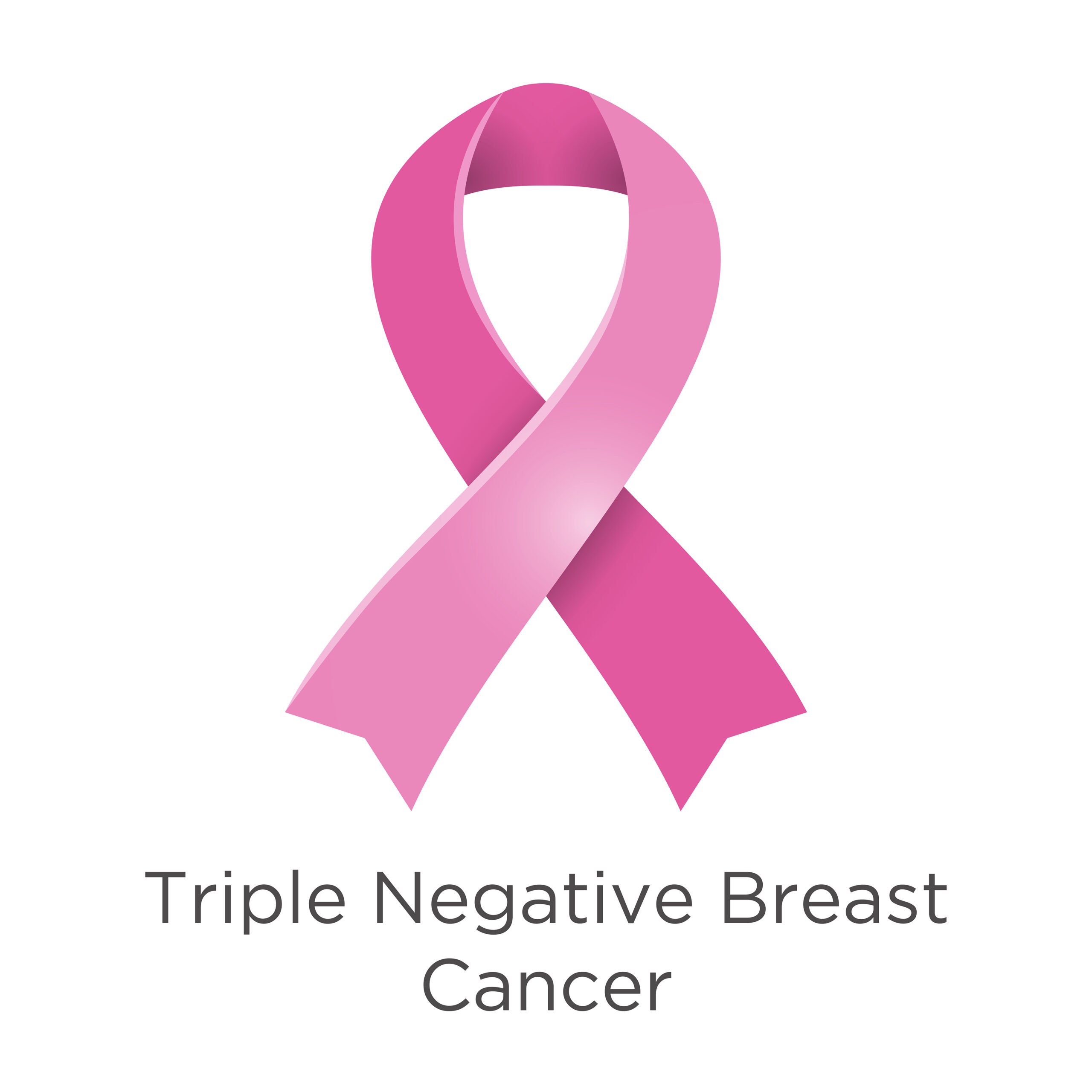Triple-negative breast cancer (TNBC) is a type of breast cancer that grows and spreads quickly. In triple-negative breast cancer, the cancer cells possess neither estrogen receptors (ER) nor progesterone receptors (PR). In addition, cancer cells show little or no presence of HER2 protein. This type of cancer is mostly seen in black women, women below the age of 40, and women with BRCA mutations.


Routine breast cancer diagnostic tests are performed to know the type and stage of breast cancer. These tests include a breast ultrasound (which gives information if the tumours are solid (cancerous) or fluid-filled cysts (non-cancerous)), a breast MRI (which gives detailed images of the breasts), and a breast biopsy. A biopsy is the most accurate way to conclude the type and stage of breast cancer. In this test, a tissue sample is collected by inserting a thin needle into the breasts. Thus the collected sample is sent to a laboratory for analysis of the type and grade of cancer cells.
Along with these tests, blood tests and organ function tests may also be performed to choose the right treatment for your condition.
Not all the tests are necessary, your doctor will suggest any of the mentioned tests based on your doctor’s suspicion, signs and symptoms, patient’s health, and results of earlier diagnostic tests.
If the diagnostic test results show ER-negative, PR-negative, and HER2-negative (or present in less quantity), then the breast cancer is diagnosed as triple-negative breast cancer.
Based on the TNBC type and stage, and the patient’s general health, an Oncologist will choose the best treatment plan. Currently, surgery, chemotherapy, immunotherapy, and radiation therapy are the available treatment options for all stages of TNBC.
As TNBC lacks ER, PR, and HER2, cancer treatments such as targeted therapy and hormone therapy do not work. Because there is no protein to treat with targeted therapy, and there are no hormones involved in cancer growth to treat with hormone therapy.
For all the 3 stages, chemotherapy is often the best systemic treatment, in combination with surgery. Chemotherapy can be given as neoadjuvant chemotherapy (before surgery) or adjuvant chemotherapy (after surgery).
In early-stage TNBC, breast-conservation surgery (BCS) or a mastectomy is recommended if the tumours are small and can be surgically removed.
If tumours are larger and have affected lymph nodes, chemotherapy or sometimes radiation therapy is given for a certain period after surgery. This helps to destroy any remaining cancer cells and reduce the risk of cancer recurrence.
In some cases, chemotherapy is given prior to surgery either alone or in combination with an immunotherapy drug, Pembrolizumab. This can help shrink large tumours and make it easier for surgical removal. After a certain period of neoadjuvant chemotherapy, preferred surgery will be done and cancer tumours are removed.
If cancer is still found even after neoadjuvant chemotherapy and surgery, oral chemotherapy or immunotherapy can be recommended to destroy the leftover cancer cells and reduce the risk of cancer recurrence.
When triple-negative breast cancer has spread to other parts of the body, then it is considered stage IV TNBC. In this condition, chemotherapy is the primary treatment of choice.
For advanced TNBC, in which the cancer cells have PD-L1 protein, immunotherapy is recommended as the first-line treatment along with chemotherapy. PD-L1 protein is rarely found in TNBC. According to the American Cancer Society, it is found in about 1 out of 5 TNBCs.
USFDA (United States Food and Drug Administration) has approved Pembrolizumab (Brand Name: Keytruda) for the treatment of PD-L1-positive breast cancer and locally advanced or metastatic TNBC that cannot be surgically removed. This drug is also approved to use in combination with chemotherapy before surgery, or alone after surgery for early-stage TNBC that has a higher risk of recurrence. It is also suitable for advanced TNBC in which cancer cells show high levels of gene changes.
Another immunotherapy drug, Sacituzumab govitecan (Brand Name: Trodelvy) is also approved by USFDA for the treatment of previously treated metastatic TNBC and for cancer that has recurred in other parts of the body.
Participating in clinical trials is also a good option regardless of what stage of TNBC the patient is suffering from. It enables a patient to access newer treatments that are not available as standard treatments. While TNBC is uncommon and its treatments may not yield effective outcomes when compared to other breast cancers, clinical trials may help. Discuss with your doctor to find out if clinical trials are the right choice for you.
At Onco, a multidisciplinary team of cancer experts together determines the right treatment option that suits you best. The treatment plan will be tailored based on the characteristics of your breast cancer, and your past and present medical conditions.
Reach out to us through our website or call us at 79965 79965 for any kind of cancer services.
Related Articles:
Breast Cancer During Pregnancy: Find Out How It Is Treated
Stage IV Breast Cancer: No Longer a Terminal Diagnosis
కీమోథెరపీ కోసం క్యాన్సర్ రోగులు ఎలాంటి దుస్తులు ధరించాలో తెలుసా? ఈ ఆర్టికల్లో, క్యాన్సర్ రోగులకు కీమోథెరపీని సౌకర్యవంతంగా పొందడంలో సహాయపడే దుస్తుల జాబితాను అందించాము.
ఈ కథనం మీ క్యాన్సర్ రకానికి సరైన క్యాన్సర్ వైద్యుడిని కనుగొనడానికి 6-దశల గైడ్ను వివరిస్తుంది.
तंबाकू का सेवन गुटका, जर्दा, पैन मसाला आदि के रूप में करना सिर और गले के कैंसर का मुख्य कारण…
నోటి పుండ్లతో బాధపడుతున్న క్యాన్సర్ రోగులకు క్యాన్సర్ చికిత్సలో ఉన్నప్పుడు తీసుకోవాల్సిన 12 ఉత్తమ ఆహారాలు.
క్యాన్సర్కు కారణమయ్యే 6 జీవనశైలి కారకాలు గురించి ఈ కథనంలో వివరంగా ఇవ్వబడ్డాయి. అవి ఏమిటో తెలుసుకోండి!
शोध की मानें तो न्यूज़पेपर प्रिंट करने में जो स्याही का इस्तेमाल होता है उसमें ऐसे केमिकल होते हैं जो…